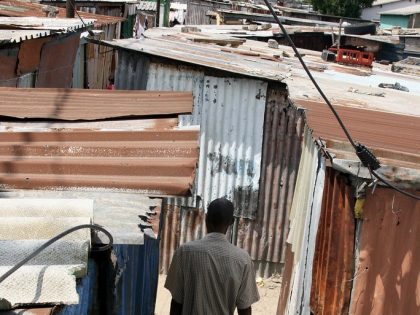
Challenging whiteness in South Africa
White South Africans rarely look in the proverbial mirror to reflect on where they come from and how those histories shape their current realities.

White South Africans rarely look in the proverbial mirror to reflect on where they come from and how those histories shape their current realities.

When our political parties only have recourse to the realm of identity and culture, it is a smokescreen for their lack of political legitimacy and programmatic content. It is cynically unpolitical, and it’s all bullshit.

We need to reimagine our conceptions of feminist justice in South Africa: Putting people in cages is not liberation.

Some churches in South Africa have become embroiled with criminal economies.

Bill Freund was a Marxist historian in method, attentive to political economy and to the material underpinnings of power, while retaining a critical distance to Marxism.

On the other side of the pandemic, we must strengthen and build strong working-class movements to challenge imperialism and neocolonialism.

When considering Herman Mashaba’s new political plans, the South African public must reckon with the former mayor of Johannesburg's actual record.

Three activists from the Assembly of the Unemployed talk to us about the challenges facing working-class communities in South Africa.

How do we deal with the unfinished business of the past? Cape Town has a surprisingly poetic answer.

COVID-19 re-affirmed journalism is a public good, yet as newsrooms collapse, journalism is in danger.

Drummer Asher Gamedze’s new album is a groundbreaking body of work in the musical trajectory of South African jazz.

What does it mean when a community takes justice into its own hands? Revisiting the case of People Against Gangsterism and Drugs (PAGAD) in Cape Town.

How race came to function as fuel to an exploitative economic system. Take the case of South Africa.

What continuities can be drawn from the murder of Ahmed Timol in apartheid Johannesburg to the killing of George Floyd in Minneapolis?

Ashley Kriel, murdered on 9 July 1987, embodied a kind of politics that people feel are missing from South African politics today: tireless commitment and sacrifice.

As the South African ruling class wages a protracted war against the poor and working class, it grows comfortable with the idea that people have more or less accepted the status quo.

The Nigerian scholar and poet, Harry Garuba, who died in February 2020, was a key figure in African Studies and teaching literature in South Africa.

Livermon’s new book explores how South African kwaito artists, Lebo Mathosa and Mandoza, pushed against the boundaries of gender and performance in their music.

The politics of local resistance in urban South Africa: Evidence from three informal settlements.

The painter Thenjiwe Niki Nkosi speaks to Drew Thompson about the evolution of her practice and how she locates herself in contemporary African art.